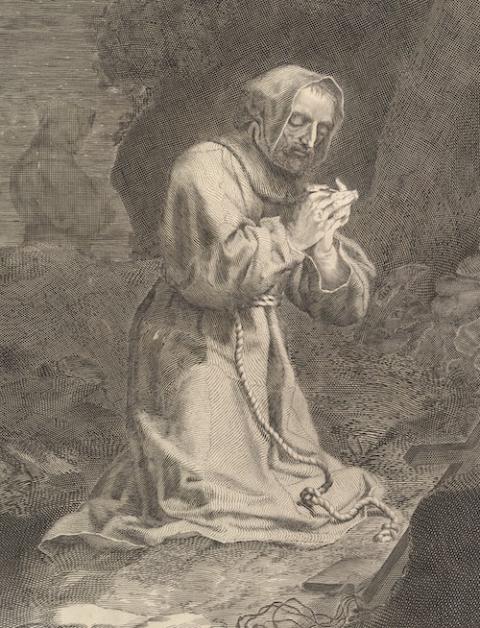Environmental activist and campaigner Mya-Rose Craig, 18, holds a cardboard sign reading "youth strike for climate" as she sits on the ice floe in the middle of the Arctic Ocean, hundreds of miles above the Arctic Circle, Sept. 20. (CNS/ Reuters/Natalie Thomas)
EarthBeat is more than a year old now, and our stories have spanned the globe and many facets of the climate crisis facing our common home. As 2020 ends, we're taking some time to look back on the stories that resonated most with our readers.
Here are the top 10 stories on EarthBeat in the past year, ranked in order of the amount of time readers spent on the page. In a year in which the world as we knew it changed completely, readers turned to our Burning Questions to understand environmental justice as the United States experienced a social uprising and to learn more about the connections between the coronavirus pandemic and climate change.
Readers also looked to Catholic sisters for leadership, spending a total of 61 days reading our reporting on the efforts of women religious to provide major funding for climate reporting and solutions.
1. Burning Question: What is environmental justice?
Poor air quality from an oil well. Contaminated drinking water from a chemical plant. Low-income housing located in a floodplain. These are all examples of environmental injustice.
2. How the University of Dayton divested from fossil fuels — and what happened to its bottom line
In June 2014, the University of Dayton ventured into fairly uncharted territory for any U.S. academic institution, much less a Catholic college. Now the university has been completely divested from fossil fuels for more than three years.
3. A sermon on COVID-19 and climate change
Mark Silk, professor and director of the Greenberg Center for the Study of Religion in Public Life at Trinity College, writes, "As a congregation, we can be as political as we need to when it comes to issue advocacy. And on this issue, we need to a lot, because the only real solution will come with changes in national policy."
Advertisement
4. Burning Question: What is the Season of Creation?
The Season of Creation is a monthlong prayerful observance that calls the planet's 2.2 billion Christians to pray and care for God's creation. It is becoming more prominent, and Catholic involvement is growing. It's not just about prayer, though.
5. Oklahoma governor asked EPA to strip tribes of environmental authority
From our partnership with Covering Climate Now, a global journalism collaboration, came this piece: Gov. Kevin Stitt (R-OK) has asked the EPA to give his state jurisdiction over environmental regulations on Native American reservations. This would include regulating fossil fuels, a multibillion-dollar industry that donated $239,102 to Stitt this election cycle.
6. Dominican sisters commit $46 million to seed new climate solutions funds
The new Climate Solutions Funds are a collaboration five years in the making between the Dominican sisters and prominent investment firm Morgan Stanley. The money will be directed toward global projects aimed at pursuing solutions to climate change and achieving the United Nations Sustainable Development Goals.
7. Burning Question: How does coronavirus connect to climate change?
It's true that the global response to the virus has led to significant dips in carbon emissions worldwide. It's also true that some experts are saying the response shows the potential for radical political action in the face of an emergency. But the coronavirus is NOT a good thing. For addressing the climate crisis or anything else. At all.

(Courtesy of Grace Hill Media)
8. Burning Question: Why is Francis of Assisi the patron saint of ecology?
Beyond the birdbaths and the blessing of pets on his Oct. 4 feast day, Francis of Assisi is also known as the patron saint of ecology. What does that mean? Who made that decision? And why? This Burning Question answers it all.
9. Environment, other issues beyond abortion are critical in voting, bishop says
Pushing back against single-issue voting, Lexington Bishop John Stowe said during a Sept. 10 webinar that Catholics should consider concerns beyond abortion, such as the environment, when evaluating candidates.
10. Franciscan Sisters give NCR $1.5 million to help 'wake up the world'
The Franciscan Sisters of Perpetual Adoration announced on July 31 a gift of $1.5 million to NCR's endowment earmarked for supporting and amplifying "integral ecological education and journalism reflecting the spirit of Laudato Si'." The gift marks the establishment of the Laudato Si' Fund at NCR.








